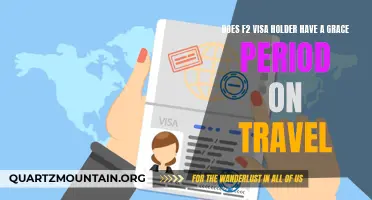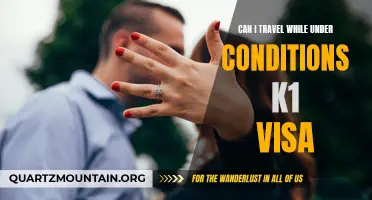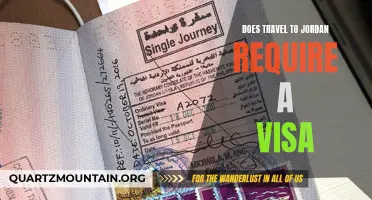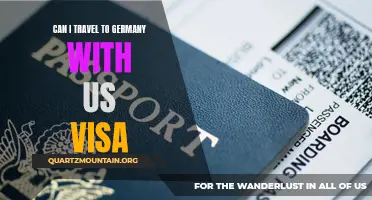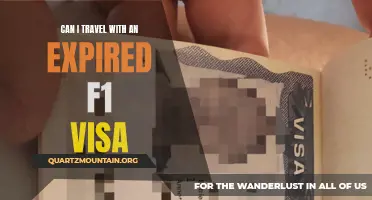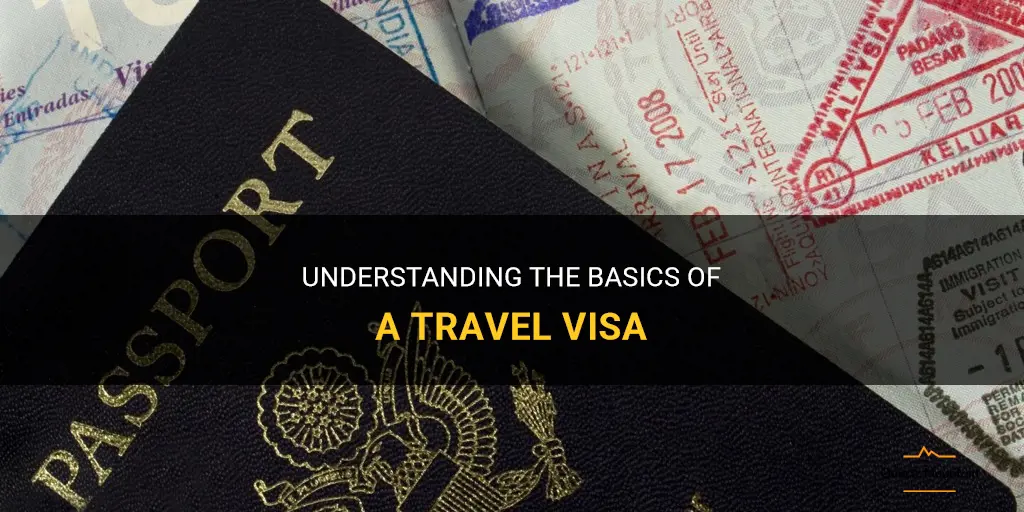
Traveling to different countries can be an exciting and enriching experience, but navigating the complexities of obtaining a travel visa can sometimes feel like hitting a roadblock. Whether you're planning a vacation, studying abroad, or going on a business trip, understanding the basics of a travel visa is essential. From knowing the different types of visas to understanding the application process, this guide will help unravel the mysteries of this vital travel document and ensure smooth sailing on your next international adventure. So, fasten your seatbelts and prepare to gain a deeper understanding of the basics of a travel visa!
| Characteristics | Values |
|---|---|
| Purpose | Tourism, Business, Education, Work, Family Visit, Medical Treatment |
| Duration | Varies depending on the country and type of visa |
| Validity | Typically 3 months to several years |
| Entry | Single Entry, Multiple Entry |
| Application Process | Online, In-person at consulate/embassy |
| Required Documents | Passport, Visa application form, Photograph, Proof of travel/itinerary, Financial documents, Purpose of visit document |
| Visa Fee | Varies depending on the country and type of visa |
| Processing Time | Varies depending on the country and type of visa |
| Restrictions | Limited stay, No work allowed, No access to public funds |
| Renewal | May require reapplication or extension |
| Expiry | Visa becomes invalid after the expiration date |
| Extensions | Some visas can be extended |
| Sponsorship | Certain visas require a sponsor or host in the destination country |
| Additional Requirements | Depending on the country, additional requirements may include medical tests, insurance coverage, character references, etc. |
| Visa-Free Countries | Some countries have agreements allowing visa-free travel for certain passport holders |
| Visa-on-Arrival | Some countries allow visa application and issuance upon arrival at the airport |
| Visa Waiver Programs | Certain countries participate in visa waiver programs, allowing citizens to visit without a visa for a specified period |
| Travel Restrictions | Some countries have travel restrictions or bans in place due to political, health, or security reasons |
| Overstaying | Overstaying a visa can result in penalties, deportation, or future travel complications |
What You'll Learn
- What is a travel visa and why is it necessary for certain countries?
- How can I apply for a travel visa?
- How long does it usually take to obtain a travel visa?
- Are there any specific requirements or documents needed for a travel visa application?
- Is it possible to enter a country without a travel visa and what are the consequences if caught?

What is a travel visa and why is it necessary for certain countries?
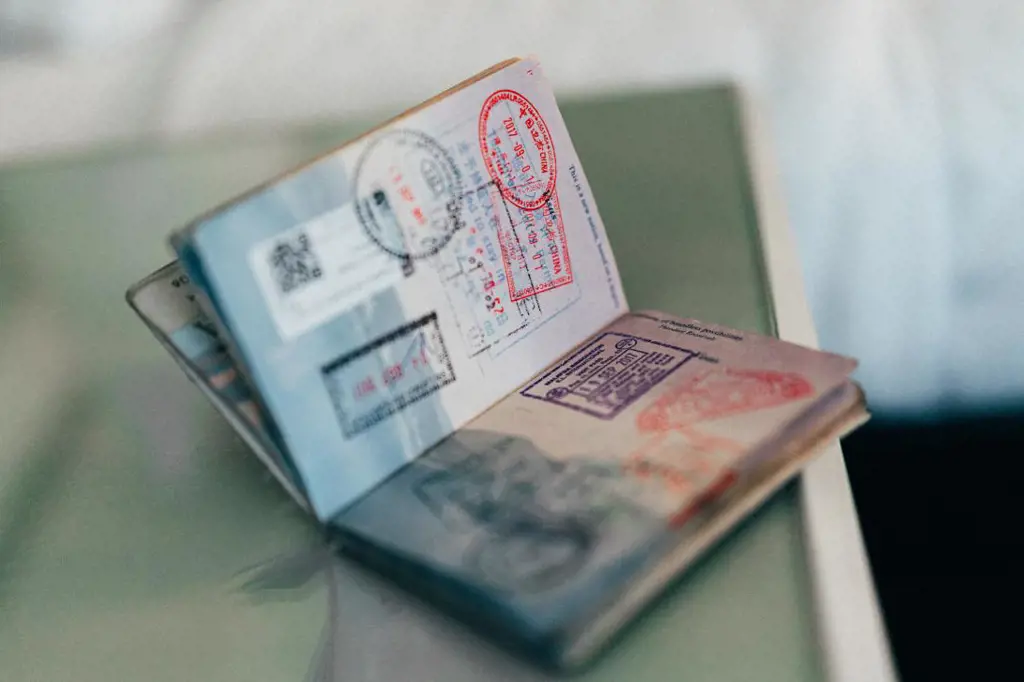
A travel visa is an official permission granted by a government to a non-citizen to enter, stay, and travel within that country for a specified period of time. It is usually a stamp or sticker placed in a passport that serves as proof of authorization.
The need for a travel visa depends on several factors, including the traveler's nationality, the country being visited, the purpose of the visit, and the length of stay. While some countries have visa-free agreements or allow visa-on-arrival for certain nationalities, many countries require visitors to obtain a visa in advance.
There are several reasons why a travel visa may be necessary for certain countries. Here are some of the main reasons:
- Immigration control: A travel visa allows a country to regulate the entry and exit of foreigners. It helps the government keep track of who is entering and leaving the country and prevents unauthorized individuals from staying or working illegally.
- National security: Visa requirements help countries maintain national security by screening individuals before they enter. The visa application process typically includes background checks, interviews, and document verification to ensure that the traveler poses no security threat.
- Reciprocity: Visa requirements can be based on the principle of reciprocity. If a country requires visas from citizens of another country, it may be because that other country also requires visas from its citizens. This is often seen in cases where visa requirements are imposed as a diplomatic response to policies of other nations.
- Economic considerations: Some countries use visa requirements to promote tourism and generate revenue. By charging visa fees, countries can generate income that can be used for infrastructure development, public services, and other economic programs.
- Public health concerns: In certain cases, a travel visa may be required to prevent the spread of communicable diseases. For example, during global health crises such as pandemics, countries may impose visa requirements to ensure that travelers have been vaccinated or screened for infectious diseases.
It is important for travelers to research and understand the visa requirements of the country they plan to visit in advance, as the application process can be time-consuming and complex. Each country has its own set of requirements, which may include documents such as a valid passport, invitation letter, proof of financial stability, travel itinerary, and medical records.
Travelers are advised to apply for visas well in advance of their planned trip to allow for sufficient processing time. Failure to comply with visa requirements can result in denied entry or deportation from the country.
In conclusion, a travel visa is a formal authorization that allows non-citizens to enter, stay, and travel within a specific country for a designated period of time. It is necessary for certain countries to regulate immigration, ensure national security, promote economic development, and address public health concerns. Travelers should always check the visa requirements of their desired destination and comply with the application process to avoid any issues during their travels.
How Can I Travel to the Bahamas on an H1B Visa?
You may want to see also

How can I apply for a travel visa?
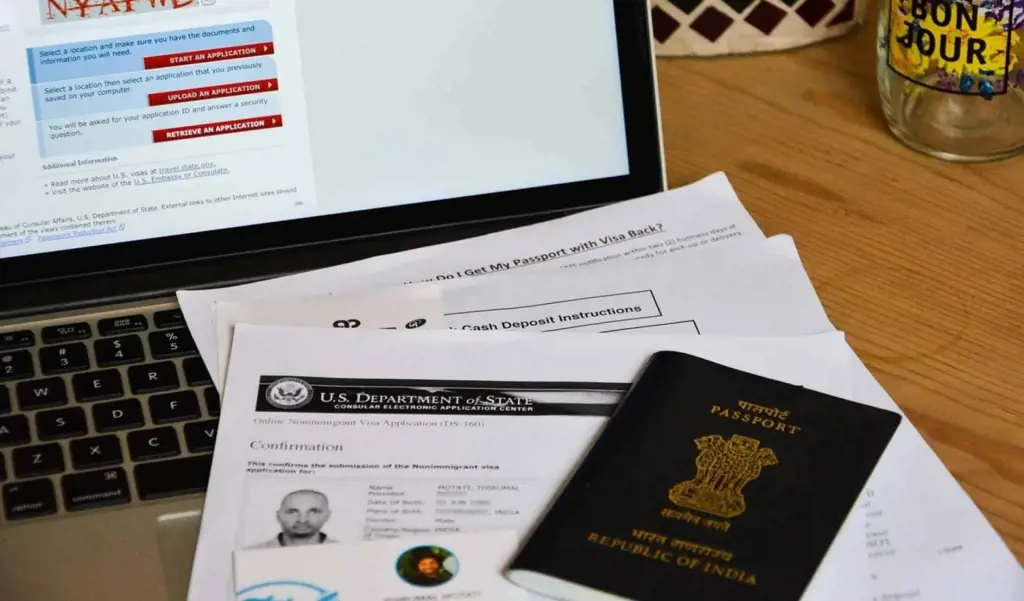
Applying for a travel visa can be a confusing and overwhelming process, especially if you are not familiar with the requirements and procedures. However, with the right information and preparation, you can successfully navigate through the application process and obtain the necessary visa for your travel plans. This article will guide you through the steps to apply for a travel visa, using the United States visa application process as an example.
Determine the type of visa you need:
Before applying for a travel visa, it is important to determine the type of visa you will need for your specific travel purpose. Whether it is a tourist visa, business visa, study visa, or work visa, each category has its own set of requirements and application procedures. The U.S. Department of State's website provides detailed information about the different visa categories, so make sure to select the one that best suits your travel plans.
Gather the required documents:
Once you have determined the type of visa you need, gather all the required documents for your application. This may include a valid passport, a completed visa application form, a passport-sized photograph, proof of travel purpose (such as an invitation letter or hotel reservation), financial documents, and any additional supporting documents specific to your visa category. It is important to carefully review the document checklist provided by the embassy or consulate to ensure you have all the necessary paperwork.
Complete the visa application form:
The visa application form is a crucial part of the visa application process. Take your time to carefully fill out the form, providing accurate and truthful information. The form may ask for personal details, travel history, employment information, and other relevant information. Be prepared to provide detailed information about your travel plans and intentions, as this will help the visa officer assess your eligibility.
Pay the visa application fee:
Most visa applications require a non-refundable fee, which varies depending on the visa type and country of application. The fee is typically paid online or at a designated payment center. Make sure to keep a receipt of your payment, as you may need it later in the application process.
Schedule and attend a visa interview:
In some cases, visa applicants are required to attend a visa interview at the embassy or consulate. The interview is an opportunity for the visa officer to assess your eligibility and ask any additional questions about your application. It is important to arrive on time and be prepared for the interview by bringing all the required documents and being ready to answer questions about your travel plans and intentions.
Wait for a decision:
After submitting your visa application, the processing time may vary depending on various factors such as the embassy or consulate's workload and the visa category. It is important to be patient during this waiting period and avoid making any travel arrangements until you receive a decision on your application. Once a decision has been made, you will be notified by the embassy or consulate.
In conclusion, applying for a travel visa may seem like a daunting task, but by following these steps and being well-prepared, you can increase your chances of a successful application. Remember to carefully review the requirements, gather all the necessary documents, and provide accurate information in your application form. By doing so, you will be on your way to obtaining the travel visa you need for your upcoming journey. Safe travels!
Exploring the Possibilities: Can H1B Visa Holders Travel to Canada?
You may want to see also

How long does it usually take to obtain a travel visa?
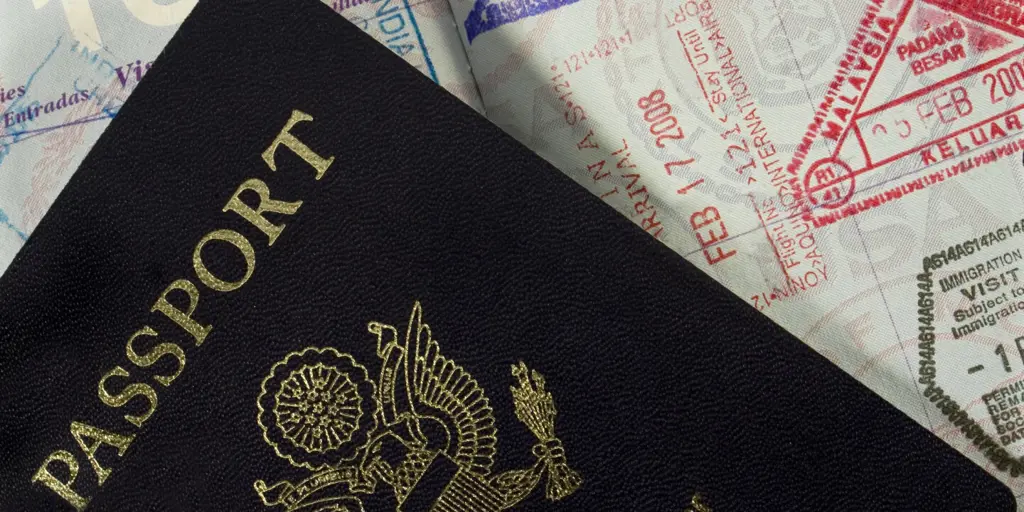
If you are planning a trip abroad, one important factor to consider is how long it will take to obtain a travel visa. The time frame can vary depending on several factors, including the destination country and the type of visa you are applying for. In this article, we will explore the general timeline for obtaining a travel visa and provide some tips on expediting the process.
- Research the Visa Requirements: The first step in obtaining a travel visa is to research the specific requirements for the country you plan to visit. Each country has its own visa application process, including the required documentation and processing times. Make sure you have all the necessary documents, such as a valid passport, proof of financial means, and a completed visa application form.
- Submit Your Application: Once you have gathered all the required documents, you can submit your visa application. This is usually done through the country's embassy or consulate in your home country. Some countries also allow online visa applications, which can expedite the process.
- Processing Time: The processing time for a travel visa can range from a few days to several weeks or even months. It depends on various factors such as the volume of applications, the complexity of your case, and the type of visa you are applying for. Generally, tourist visas have faster processing times compared to other types of visas, such as work or study visas.
- Additional Processing Steps: In some cases, the visa application process may include additional steps, such as an interview or medical examination. These additional requirements can add to the overall processing time. It is essential to factor in these extra steps when planning your trip.
- Expedited Processing: If you need your travel visa quickly, many countries offer expedited processing options for an additional fee. This can significantly reduce the processing time, sometimes to just a few days. However, keep in mind that not all countries offer expedited processing, and it may not be available for all types of visas.
- Plan Ahead: To avoid any last-minute delays or stress, it is advisable to start the visa application process well in advance of your planned travel dates. Taking into account the average processing time, plan to submit your application at least one to three months before your intended departure. This will give you enough time to receive your visa and make any necessary travel arrangements.
- Seek Professional Assistance: If you are unsure about the visa application process or need assistance with the paperwork, consider seeking help from a professional immigration consultant or visa agency. They have the expertise and knowledge to guide you through the process and can help ensure that your application is complete and accurate.
In conclusion, the time it takes to obtain a travel visa can vary depending on several factors. It is crucial to research the specific requirements for the country you plan to visit and start the visa application process well in advance of your intended departure. By following these steps and seeking assistance if needed, you can increase your chances of obtaining a travel visa in a timely manner.
Exploring Travel Opportunities: Journeying to Canada on an H1B Visa
You may want to see also

Are there any specific requirements or documents needed for a travel visa application?
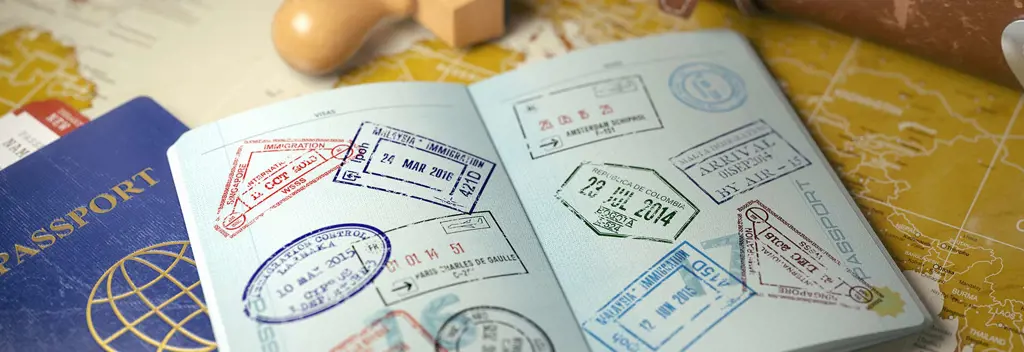
When planning to travel abroad, one important aspect to consider is obtaining a travel visa for the country you plan to visit. A travel visa is a document that allows you to enter and stay in a foreign country for a specific period of time. The requirements for a travel visa can vary depending on the country you are visiting. In this article, we will discuss the general requirements and documents needed for a travel visa application.
- Passport: The first and most crucial document you will need for a travel visa application is a valid passport. Your passport should be valid for at least six months beyond your intended travel dates. It is important to check the expiration date on your passport well in advance and renew it if necessary.
- Visa application form: Each country will have its own visa application form. You will need to fill out this form accurately and completely. It is important to double-check all the information you provide to ensure there are no errors or discrepancies. The visa application form can usually be downloaded from the embassy or consulate website of the country you plan to visit.
- Passport-sized photographs: Most travel visa applications require passport-sized photographs. These photographs should meet the specific requirements set by the embassy or consulate. The requirements usually include specifications regarding the size, background color, and clothing restrictions. It is advisable to obtain the photographs from a professional photographer to ensure they meet the necessary criteria.
- Proof of travel arrangements: You will be required to provide proof of your travel arrangements, such as a flight ticket or an itinerary from a travel agency. This is to demonstrate that you have a planned itinerary and intend to return to your home country within the specified time frame. It is important to ensure that your travel arrangements align with the validity period of your visa.
- Financial documents: Many countries require proof of financial capability to cover your expenses during your stay. This can include bank statements, proof of employment, or sponsorship letters. The specific financial requirements may vary depending on the country you are visiting, so it is important to check the embassy or consulate website for the specific documents they require.
- Travel insurance: Some countries may require proof of travel insurance as part of the visa application. Travel insurance provides coverage for medical emergencies, trip cancellations, and other unforeseen circumstances. It is recommended to purchase travel insurance that meets the requirements of the country you plan to visit.
- Other supporting documents: Depending on the purpose of your visit, you may be required to provide additional supporting documents. For example, if you are visiting for business purposes, you may need to provide a letter of invitation from a business partner or a conference registration confirmation. If you are visiting for tourism purposes, you may need to provide hotel reservations or a detailed travel itinerary.
It is important to note that the requirements for a travel visa can change at any time, so it is essential to check the official embassy or consulate website for the most up-to-date information. Additionally, it is advisable to submit your visa application well in advance to allow for any processing delays.
In conclusion, obtaining a travel visa requires careful preparation and the submission of specific documents. It is essential to have a valid passport, fill out the visa application form accurately, provide passport-sized photographs, show proof of travel arrangements, demonstrate financial capability, and provide any additional supporting documents required. By being well-prepared and organized, you can increase your chances of a successful travel visa application.
Exploring the Opportunities of Traveling to Canada on an H1B Visa
You may want to see also

Is it possible to enter a country without a travel visa and what are the consequences if caught?
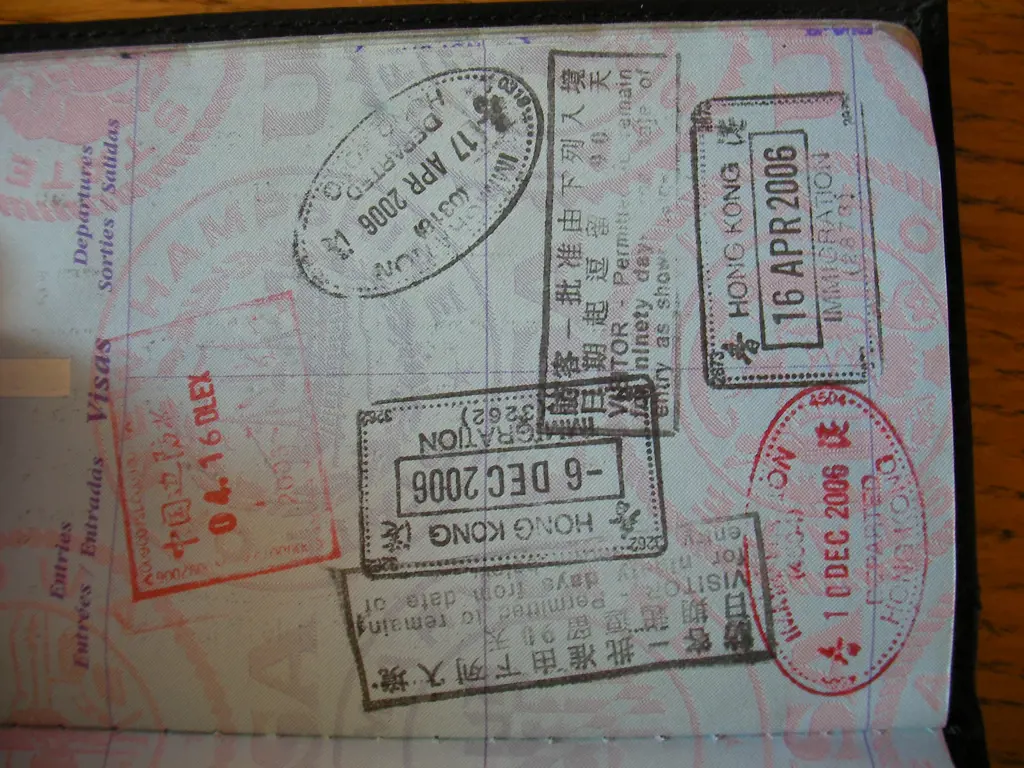
Traveling to a foreign country can be an exciting and rewarding experience. However, it is essential to adhere to the entry requirements set by the destination country, including obtaining the necessary travel visa. Failure to do so can result in serious consequences, ranging from denial of entry to deportation and even legal action. Let's explore this topic further.
Firstly, it is important to understand what a travel visa is and why it is required. A travel visa is an official document issued by the country you plan to visit, granting you permission to enter and stay within its borders for a specific period. This document serves as proof that you have met the entry requirements and have been deemed eligible to visit the country.
While some countries do offer visa-free travel for certain nationalities, the majority of countries require travelers to obtain a visa prior to arrival. This visa application process usually involves providing personal information, travel details, and, in some cases, relevant documents such as an invitation letter or proof of accommodation.
Attempting to enter a country without a required travel visa is known as "illegal entry" or "visa fraud." Most countries take this offense very seriously, and the consequences can be severe. Here are some of the possible consequences if caught entering a country without a visa:
- Denial of Entry: Upon arriving at the destination country, immigration authorities have the right to deny your entry if you do not possess a valid visa. This could result in immediate deportation and being sent back to your country of origin at your own expense.
- Detention: In some cases, individuals caught without a visa may be detained by immigration authorities for further investigation. This can lead to hours, days, or even weeks spent in a detention center until a decision is made regarding your case.
- Legal Action: Certain countries consider illegal entry as a criminal offense. If caught, you may face legal action, including fines, imprisonment, or both. This can have long-lasting consequences on your personal and professional life.
- Immigration Bans and Blacklisting: Attempting to enter a country without a visa can result in being listed as an undesirable visitor. Being blacklisted can lead to future visa applications being denied and having limited travel options to certain countries.
- Disruption of Future Plans: A record of illegal entry can hinder your chances of obtaining a visa in the future, even for legitimate travel purposes. Immigration officials may view your previous violation as an indication of a higher risk of illegal immigration, making future visa applications more challenging.
It is crucial to emphasize that attempting to enter a country without a visa is not worth the risk. It is always best to follow the proper legal procedures and obtain the necessary travel visa before embarking on your journey. Be sure to research the visa requirements of your intended destination well in advance, allowing ample time to apply and receive your visa.
In conclusion, entering a country without a travel visa can have severe consequences. Denial of entry, detention, legal action, immigration bans, and blacklisting are all possible outcomes if caught. To avoid these risks, always ensure that you have the correct visa before traveling to a foreign country. Remember, it is better to be safe and compliant than to face the consequences of visa fraud.
Traveling to Canada on an F1 Visa: What You Need to Know
You may want to see also
Frequently asked questions
A travel visa is an official document issued by a country's government that allows individuals to enter and stay in the country for a specific period of time. It is usually placed in the individual's passport and contains important information such as the purpose of the visit, the duration of stay, and any necessary restrictions or conditions.
You may need a travel visa when visiting certain countries as it serves as permission to enter and stay in the country for a specific period of time. Different countries have different visa requirements, so it is important to research and apply for the necessary visa before your trip to ensure a smooth and hassle-free journey.
The process for obtaining a travel visa varies depending on the country you plan to visit. Typically, you will need to complete an application form, submit supporting documents such as a valid passport, proof of accommodation, and proof of financial means, and pay the visa fee. Some countries may also require an interview or additional documentation. It is recommended to check the specific requirements and procedures of the country's embassy or consulate before applying.
The time it takes to get a travel visa can vary greatly depending on the country and the type of visa you are applying for. In some cases, it can take as little as a few days, while in others it may take several weeks or even months. It is advisable to apply for your travel visa well in advance of your planned departure date to allow for any processing delays. Additionally, some countries offer expedited processing for an additional fee if you need your visa in a shorter timeframe.


